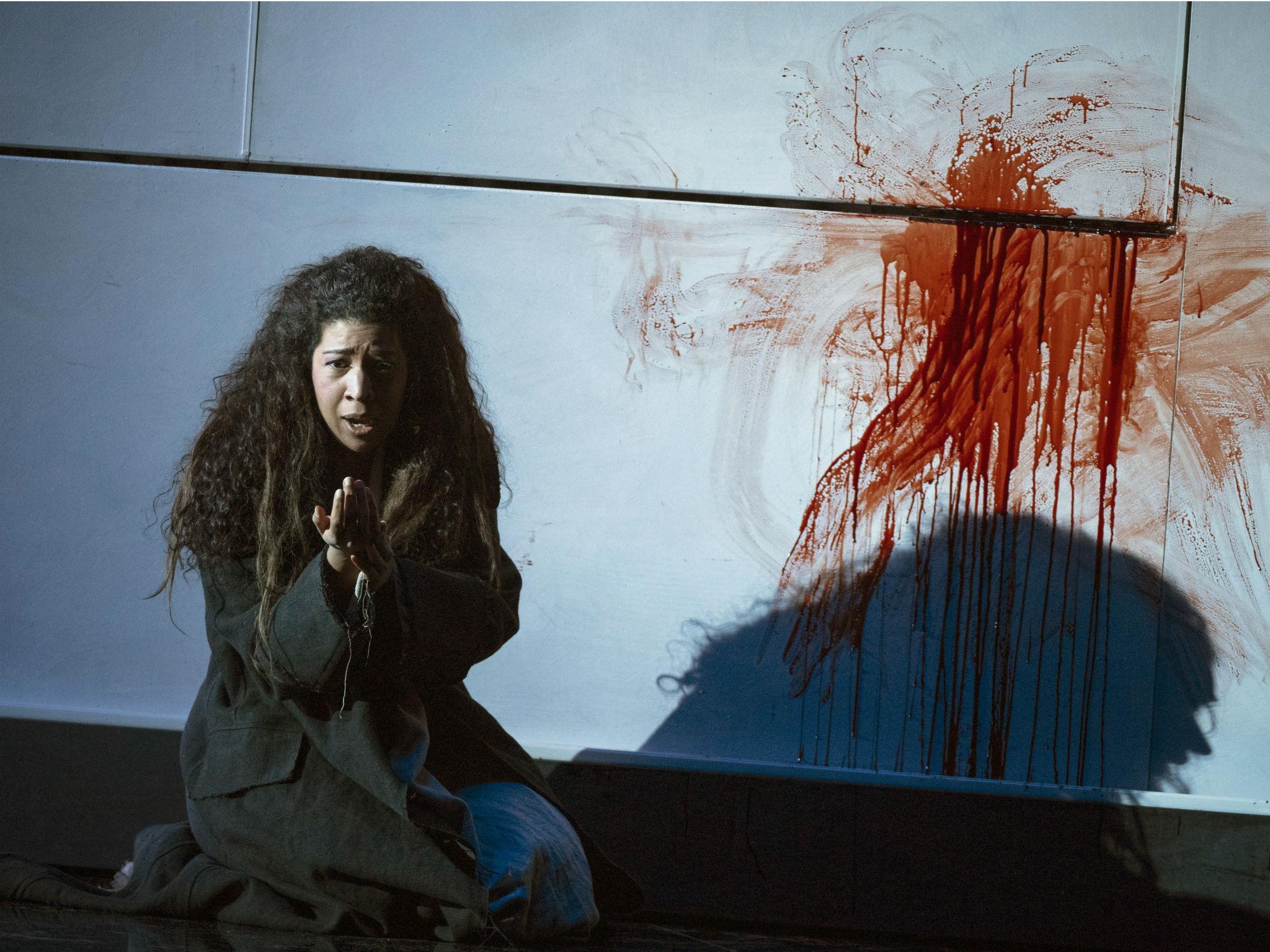La forza del destino, Wales Millennium Centre, Cardiff, review: The lead trio is wonderfully cast
WNO Artistic Director, David Pountney's new production of Verdi's opera, overcomes any obstacles with his bold vision

Your support helps us to tell the story
From reproductive rights to climate change to Big Tech, The Independent is on the ground when the story is developing. Whether it's investigating the financials of Elon Musk's pro-Trump PAC or producing our latest documentary, 'The A Word', which shines a light on the American women fighting for reproductive rights, we know how important it is to parse out the facts from the messaging.
At such a critical moment in US history, we need reporters on the ground. Your donation allows us to keep sending journalists to speak to both sides of the story.
The Independent is trusted by Americans across the entire political spectrum. And unlike many other quality news outlets, we choose not to lock Americans out of our reporting and analysis with paywalls. We believe quality journalism should be available to everyone, paid for by those who can afford it.
Your support makes all the difference.Since becoming artistic director in 2011, David Pountney’s boldness of vision has galvanised Welsh National Opera, with consistently world class results. His productions unfailingly fascinate and, with great dramatic flair and intelligence, he shows an uncommon ability to shed new light on operas deemed problematic to stage – as is Verdi’s underrated La forza del destino.
What many see as a credulity-straining patchwork – albeit with magnificent music – Pountney reveals as Verdi’s upsurge of brilliant theatrical ambition on the road towards a self-described “opera of ideas”: as tragic lovers are pursued across borders and decades by vengeful fate in the form of a blood-feud, their story becomes the frame for an epic canvas exploring war and peace; fanaticism and devotion; dispossession and resistance; and enthralment to a blood-soaked, sinister church.
It’s no accident that this production sits between vast, historico-political cousins in last autumn’s Khovanshchina (Musorgsky) and this autumn’s War and Peace (Prokofiev). But in itself – the first of a cycle of three new Verdi productions spanning three years – it’s a fantastic company achievement.
Pountney cleverly transforms the fortune-telling camp follower Preziosilla and maid Curra into an single, malevolent ringmaster Fate, powerfully personified by Justina Gringytė. Scenes are swapped in Act III (of the 1869 revision), clarifying the action while Raimond Bauer’s inspired set ratchets up both tension and pace as twin panels turn like the living pages of some mighty, abstract-cum-historical novel, strikingly lit by Fabrice Kebour and costumed by Marie-Jeanne Lecca.
Where Calatrava dies, blood continues to seep as if through generations of vendetta; tellingly, both he and the self-flagellating Padre Guardiano are sung – with heft and presence – by Miklós Sebestyén, supported by a grimly lecherous Fra Melitone (Donald Maxwell).
The lead trio is wonderfully cast: Mary Elizabeth Williams is outstanding, exciting horrified sympathy with an exquisitely sung Leonora, while Gwyn Hughes Jones is searing as her freedom-fighting, part-Incan lover, Alvaro. Luis Cansino makes an implacables Carlo; unhearing and unpitying, he embodies the fascist Italy/Spain suggested throughout with war-mongering glee. Projected by video onto the set, the fateful, “accidental” pistol revolves in slow motion through two halves designated Peace, then War – the unavoidable consequence.
Amazingly, this is WNO conductor-laureate Carlo Rizzi’s first ever Forza. He and the WNO Orchestra give a glowing account of the score, resonant and plangent alongside a WNO Chorus on spine-tingling form.
Until 17 February (wno.org.uk), then on UK tour.
Join our commenting forum
Join thought-provoking conversations, follow other Independent readers and see their replies
Comments